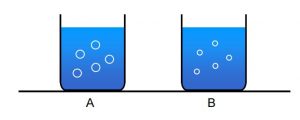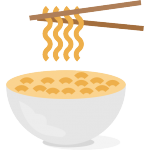3 Important Science Process Skills Your Child Needs to Know
Content is important when it comes to learning Science, but what is of greater importance is the application of knowledge in new situations and context. Instead of regurgitating information from rote-learning, your child will be expected to form analyses and think critically during tests and examinations. These are spelled out in the latest assessment objectives (updated 2017) for PSLE Science:
Objective 1: Knowledge with Understanding
Objective 2: Application of Knowledge and Process Skills
The following are the key process skills that your child will need to know and be able to apply to Science problems:
- Inferring
- Predicting
- Analysing
- Evaluating
- Generating possibilities
- Formulating hypothesis
- Communicating
In this blog post, we will go through a few of these process skills and share some useful strategies to tackle the relevant questions. Let’s get started!

1. Predicting
The following is the description of this process skill according to the Curriculum Framework by the Ministry of Education.
This is the skill of assessing the likelihood of an outcome based on prior knowledge of how things usually turn out.
Questions that require predicting will usually ask WHAT will happen next. Look out for keywords such as ‘predict’ and ‘observe’. In terms of prior knowledge, it can be in the form of a set of data from an experiment or from content knowledge (shown in the example below).
Here is an example:
Question
The diagram below shows two plastics cups, X and Y and two trough of water. Both cups have a piece of paper pasted on the inner wall, but only cup Y has a hole at its bottom.
a) Joe pushed the inverted cups fully into the trough of water. What observations would he make?
b) Explain the answer for the observations in part (a).
Let us focus on part (a) of the question, which is where you have to ‘predict’ the observations that Joe would make. Looking at the diagram, what else is there in both cups besides the dry tissue paper? There is air, and we know that air is a matter that takes up space! For cup X, there is no hole for the air to escape when it is pushed into the trough of water, so there will be some space (taken up by air) separating the tissue paper from the water. Hence, we can predict that the tissue paper in cup X will remain dry while the tissue paper in cup Y will be wet.
Something to note here is that part (a) is only asking for the observations and not the reason behind the observations, so we can just address the question and leave the explanation for part (b).
﹏﹏﹏
2. Inferring
This is the skill of interpreting or explaining observations or pieces of data or information.
Questions that require inferring are typically those that ask for the reason WHY something is happening. Your child will need to use his or her existing content knowledge to explain the observation stated in the question.
Here is an example:
Question
Cindy poured an equal amount of water but of different temperatures into two similar containers A and B. Each contained an equal amount of milk powder as shown. She observed that the bubbles in A were bigger than those in B.
Based on the observation, which container contains water with higher temperature? Explain your answer.
Why are the bubbles in container A bigger? Well, we know that everything else is the same except for the temperature of water in each container, so that is most probably the reason. With this information, we can determine that the question is testing on the concept of heat.
So, what does heat have to do with size? To answer this, we need to have our content knowledge ready and that is – heat causes all three states of matter to expand. Bigger air bubbles indicate a greater level of expansion and from this, we can infer that container A contains water with a higher temperature.
As you can see, there must be a running train of thought when it comes to questions that require inferring. We can start with the keyword/s in the question (‘higher temperature’) and once we determine the concept that the question is trying to test on, we can then make use of our existing knowledge to answer it.
﹏﹏﹏
3. Analysing (Fair Test)
This is the skill of identifying the parts of objects, information or processes, and the patterns and relationships between these parts.
Questions that require analysing usually contain graphs and tables and you would need to identify the different variables involved. A common question type are those asking for a ‘fair test’.
Here is an example:
Question
James wanted to conduct an experiment to find out if different amounts of digestive juices would affect the rate of digestion of noodles. He prepared the following set-ups for the experiment.
Which of these set-ups should James use to ensure a fair test has been conducted?
(1) A and B
(2) A and C
(3) B and C
(4) B and D
From the question, we know that the aim of the experiment is to find out how different amounts of digestive juices would affect the rate of digestion of noodles.
We can proceed to identify the variables in this experiment.
- Independent (changed) variable: Amount of digestive juices
- Dependent (measured) variable: Rate of digestion of noodles
- Control variables: Types of noodles, mass of cooked noodles, duration of experiment
For this experiment to be a ‘fair test’, there can only be one independent variable while the other variables have to remain unchanged. This is to ensure that the result obtained from this experiment is due to the amount of digestive juices only. Therefore, James have to choose set-ups A and C (option 2).

Besides getting them exam-ready, the ability to apply the various Science process skills will also encourage students to think critically and ignite curiosity towards learning about the science that is happening all around us.
Superstar Teacher is here to help your child develop and master these skills. Simply sign up for a free 14-day trial to view our Science lessons now!







